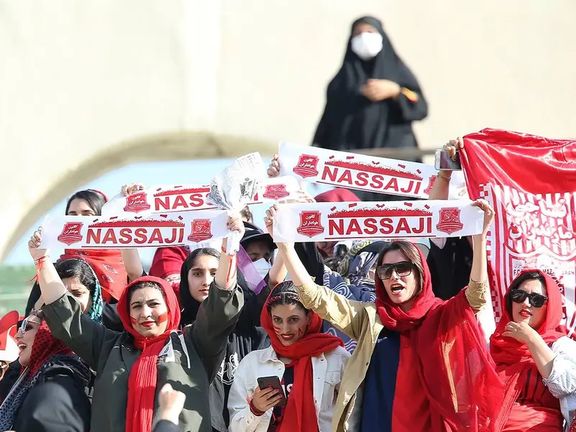Ban on Women in Iranian Stadiums Broadens

Iran has decided to prohibit women from attending football matches involving FC Nassaji Mazandaran against popular teams such as Persepolis FC and Esteghlal FC.

Iran has decided to prohibit women from attending football matches involving FC Nassaji Mazandaran against popular teams such as Persepolis FC and Esteghlal FC.
The ban extends similar restrictions previously placed in cities like Arak and Tabriz and was reportedly influenced by an incident in Arak where a female fan without mandatory hijab, referred to as a 'jimmy jump', embraced Esteghlal FC's goalkeeper Hossein Hosseini at the end of a match.
Additionally, recent tensions escalated during a match between Persepolis and Sepahan FC, where verbal altercations between female fans of Persepolis and male fans of Sepahan further complicated the situation.
The newspaper Etemad highlighted what it describes as a "strange project" to re-ban women from stadiums, suggesting that each minor incident is being used as a pretext to justify broader restrictions.
"This time, a general directive to ban women's entry to stadiums will not be issued. Instead, any small or significant incident in any stadium will be used as a pretext to ban women's entry to that particular stadium. Later, it will probably be told to FIFA that women's entry to stadiums is not banned, but in a specific stadium, it has been temporarily suspended until the infrastructure is improved in the near future," wrote Etemad.
Conversely, the conservative Kayhan daily, which has ties to Supreme Leader Ali Khamenei, supports the exclusion of women from stadiums. It argues that the environment at football matches makes the spaces unsuitable for families and women.
The ongoing debate over women's presence in stadiums has been a contentious issue in Iran, with FIFA pushing for inclusivity for several years. Despite occasional relaxations allowing limited female attendance, persistent barriers continue to restrict their full participation, often under the guise of protecting cultural values or awaiting infrastructural upgrades.